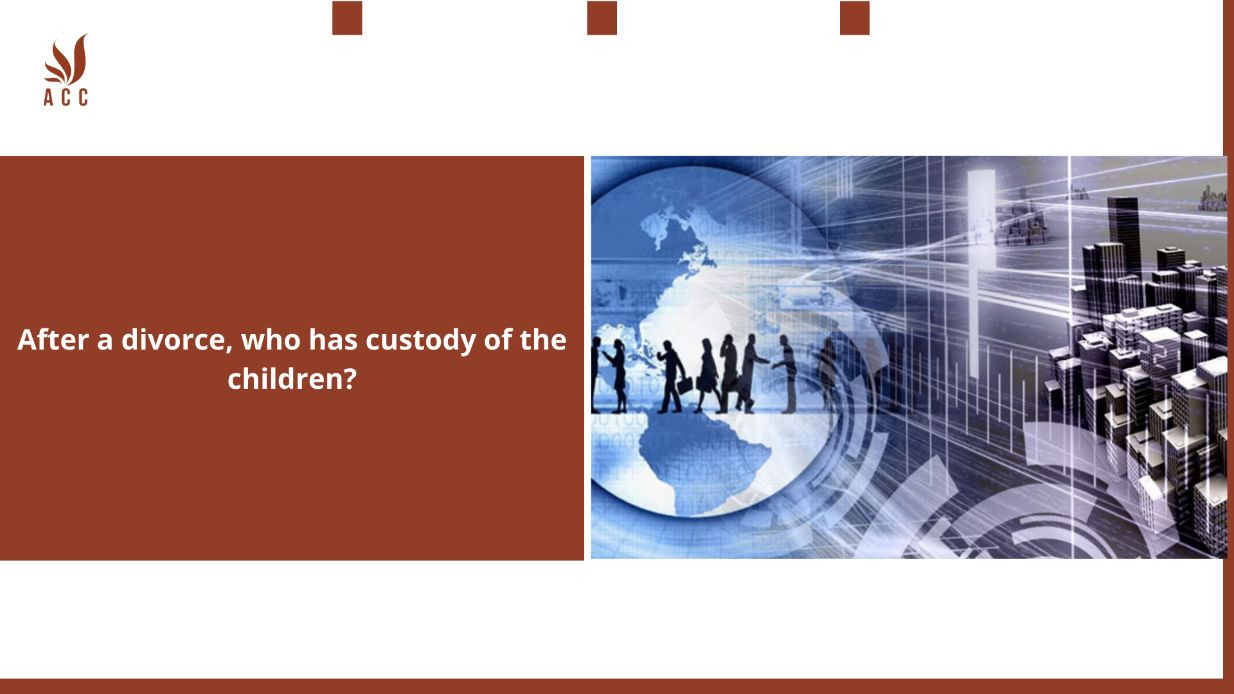
1. After a divorce, who has custody of the children?
All states use the “best interests of the child” standard in child custody disputes. But what does this mean in practice? Ultimately, it depends on what the judge thinks, based on the specific circumstances of the case.
However, many state laws provide a list of factors that judges must consider when deciding what is in the best interest of children. These factors vary by state. They can also vary from case to case: even states with long lists of specific factors always add something like "and any other relevant factors."
2. The ability of each parent to meet the child's needs
The most basic element of the “best interests” standard is that custody decisions must serve the health, safety, and well-being of children. Judges will consider whether one or both parents are capable of meeting the child's educational, medical, mental health and other needs.
3. Children's relationships with both parents
Many states have policies that explicitly encourage regular and ongoing contact between children and their divorced or separated parents. To achieve this goal, the judge will consider a number of factors related to the past and present parent-child relationship.
4. Parents' willingness to support each other in their relationship with their children
The judge will consider the parent's history of cooperation or non-cooperation with their parenting schedule. For example, judges may want to know whether a parent interferes with visitation in any way.
Judges will also look for evidence of each parent's desire to promote a good relationship between their child and the other parent. Does one parent speak ill of the other in front of the children? Does one parent tend to start arguments when picking up or dropping off the child with the other parent?
Parents who are more cooperative will often have an advantage in child custody disputes. And parents who are blatantly trying to alienate the child from the other parent - or simply cannot help but damage the other parent's relationship with the child - will find It turns out the judges have no sympathy for this type of behavior.
5. Parents' relationship with their children before divorce
Judges will review each parent's history of care and time spent with their children on a daily basis. Sometimes parents who have never been very involved in their children's lives suddenly develop a strong desire to spend more time with their children after the marriage ends.
In many cases, this wish is sincere and the judge will respect it, especially if the parent has devoted himself or herself to his or her parental role during the separation. But it will certainly take a judge some time to assess the situation to ensure that one parent is not seeking custody primarily to get over the other and that one parent has little experience in Daily care can meet these new requirements. desire. History of abuse or neglect
Clearly, when there is clear evidence of child abuse or neglect, judges will limit the abusive parent's contact with the child. If a judge grants visitation in these circumstances, visitation will usually be supervised and structured in a way that protects the children from future emotional or physical harm.
Domestic violence against the other parent will also play a role in custody decisions, especially when children witness the abuse.
Q&A
Question 1: After a divorce, who typically has custody of the children?
Answer 1: After a divorce, child custody arrangements can vary widely based on individual circumstances and legal decisions. In many cases, custody is shared through joint custody or shared custody agreements, where both parents have a role in raising the children. However, the specific custody arrangement depends on factors such as the best interests of the child, parental agreements, and court decisions.
Question 2: How is child custody determined following a divorce?
Answer 2: Child custody following a divorce is typically determined through negotiations between the parents, mediated agreements, or court decisions. Courts consider several factors, including the child's age, preferences, parental fitness, living arrangements, and the ability of each parent to provide a stable and nurturing environment. The primary goal is to establish a custody arrangement that serves the child's best interests.
Question 3: Can custody arrangements change over time after a divorce?
Answer 3: Yes, custody arrangements can change over time following a divorce. Either parent can petition the court for a modification if there is a significant change in circumstances, such as relocation, changes in the child's needs, or a parent's inability to fulfill their custodial responsibilities. The court will assess the new circumstances and make adjustments if they align with the child's best interests.
Question 4: What are the different types of custody arrangements that can be established after a divorce?
Answer 4: After a divorce, various types of custody arrangements can be established, including:
-
Joint Physical Custody: Both parents share physical custody, and the child lives with each parent for an equal or substantial amount of time.
-
Sole Physical Custody: One parent has primary physical custody, and the child resides primarily with that parent, while the other parent has visitation rights.
-
Joint Legal Custody: Both parents share decision-making authority for the child's upbringing, including education, healthcare, and religious matters.
-
Sole Legal Custody: One parent has the exclusive authority to make decisions regarding the child's upbringing.
Custody arrangements can vary widely based on the unique circumstances of each family, and the final decision is often made by agreement between the parents or by a court order.
Nội dung bài viết:






Bình luận